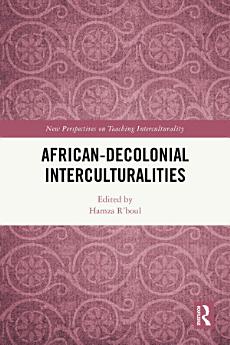African-Decolonial Interculturalities
About this ebook
The volume affirms the validity of African perspectives based on their originality and non-derivativeness rather than their status of invisibility. It contributes to a critical reflection on how African spheres and epistemologies can be represented and ultimately understood as homogeneous entities, denying the particularities of their situated acts and processes of knowing. The contributors argue that (a) theorizing and practicing interculturality otherwise requires 'looking elsewhere' by foregrounding knowledge from spheres often marginalized by dominant mainstream discourses; (b) African stories, discourses, and epistemologies are crucial for enunciating interculturality through innovative and original knowledge and thus advancing the field. The book aims to promote diverse African interculturalities, strengthen alternative theorization methods, and position interculturality as a theory of hermeneutics and liberation that African people can draw upon to navigate and understand their own and others’ experiences.
This book will be essential read for scholars and students of intercultural communication, sociology, African studies, and philosophy.
About the author
Hamza R’boul is a research assistant professor in the Department of International Education at the Education University of Hong Kong, Hong Kong. His research interests include intercultural education, critical applied linguistics, (higher) education in the Global South and decolonial endeavours in education. His books include Intercultural Communication Education and Research in the Middle East and North Africa (Routledge, 2025) and Teaching and Researching Interculturality in the Middle East and North Africa (Routledge, 2025).






